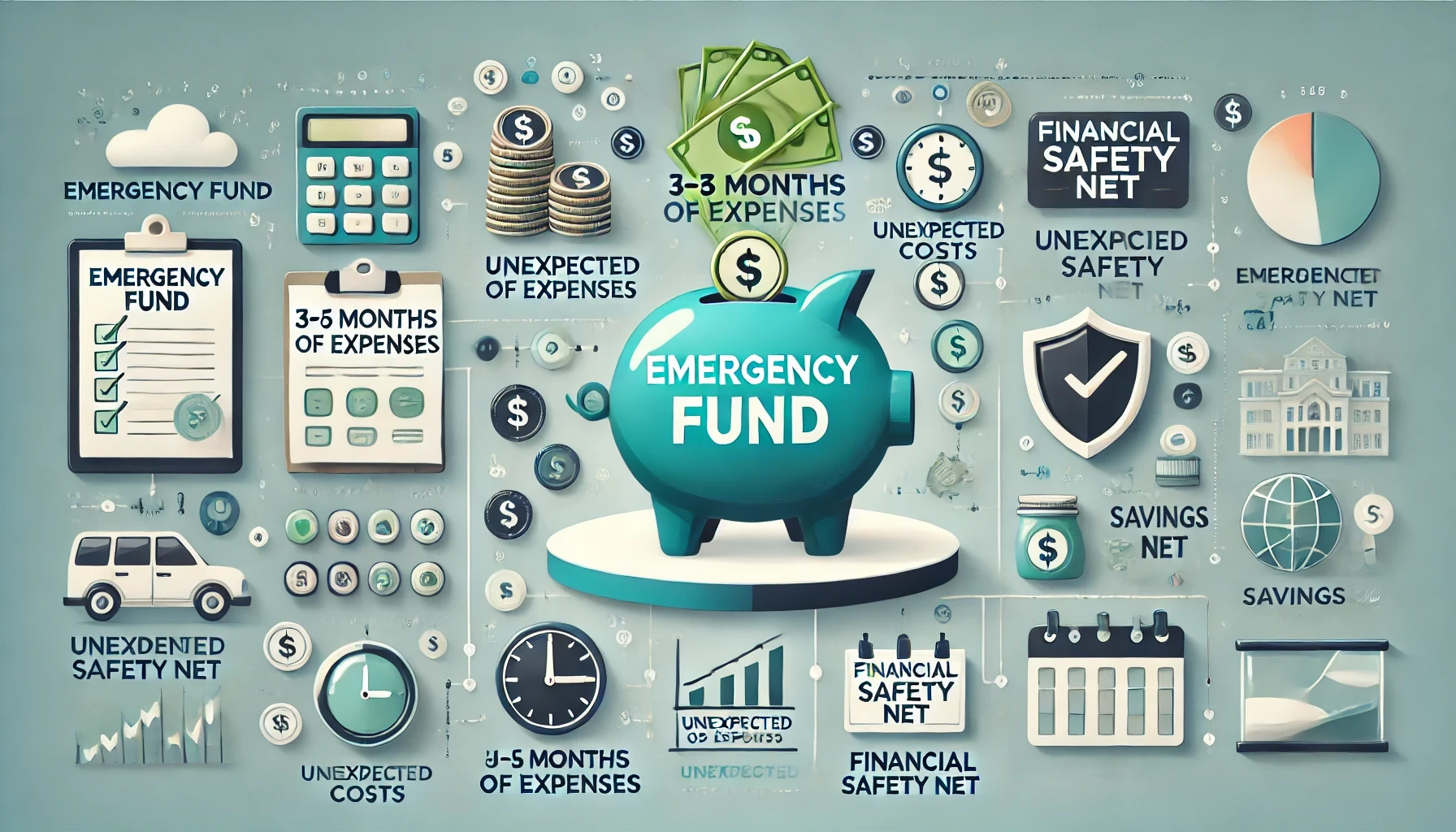Struggling to save money on a low income? You’re not alone. Many people find it challenging to build savings when their earnings barely cover essential expenses. However, with the right budgeting strategies, frugal living tips, and smart financial habits, you can save money even on a tight budget.
This guide will walk you through practical ways to save money on a low income, including budgeting, reducing expenses, increasing income, and making smart financial choices.
Why Saving Money on a Low Income is Important
Many people believe that saving money is only possible with a high income. However, even if you earn less, setting aside money for emergencies, retirement, and personal goals is crucial.
Some key benefits of saving money include:
- Financial security – Helps you manage unexpected expenses without debt.
- Peace of mind – Reduces financial stress and anxiety.
- Better opportunities – Allows you to invest in education, business, or assets.
- Debt-free living – Enables you to break the paycheck-to-paycheck cycle.
Now, let’s dive into the best ways to save money even with a low income.
1. Create a Realistic Budget
A realistic budget is essential for managing your income and expenses effectively. Follow these steps to create a low-income budgeting plan:
- Track Your Expenses – Write down all your monthly expenses to identify spending patterns.
- Prioritize Essential Costs – Rent, utilities, groceries, and transportation should come first.
- Use the 50/30/20 Budget Rule –
- 50% for needs (housing, bills, food).
- 30% for wants (entertainment, dining out, subscriptions).
- 20% for savings and debt repayment (emergency fund, investments, loans).
- Cut Non-Essential Expenses – Cancel unused subscriptions and reduce luxury purchases.
Budgeting Apps for Low-Income Individuals
Using free budgeting tools can make money management easier:
- Mint – Tracks spending and provides budgeting insights.
- YNAB (You Need a Budget) – Helps you plan every dollar wisely.
- PocketGuard – Shows how much you can spend while saving.
Common Budgeting Mistakes to Avoid
- Not accounting for irregular expenses – Include annual fees, medical costs, and occasional repairs.
- Overestimating income – Base your budget on consistent earnings rather than occasional windfalls.
- Ignoring small expenses – Daily coffee runs and impulse buys add up over time.
2. Reduce Monthly Expenses
Cutting unnecessary expenses is one of the best ways to save money when living paycheck to paycheck. Here’s how:
Save on Housing Costs
- Downsize your home – A smaller, more affordable home means lower rent and utility bills.
- Get a roommate – Splitting rent and utilities reduces costs significantly.
- Negotiate rent – Some landlords may lower rent if you sign a longer lease.
- Apply for housing assistance programs – Some states offer rental assistance for low-income families.
Cut Utility Bills
- Use energy-efficient appliances – Reduces electricity consumption.
- Unplug devices when not in use – Saves on phantom energy costs.
- Adjust thermostat settings – Lower heating and cooling costs.
- Switch to LED bulbs – They consume less power and last longer.
Save Money on Groceries
- Plan meals ahead – Avoid last-minute takeout orders.
- Use grocery store loyalty programs and coupons – Get discounts and cashback.
- Buy in bulk – Non-perishable items cost less when purchased in bulk.
- Choose generic brands – Often as good as name brands but cheaper.
- Shop at discount stores and farmers’ markets – Fresh produce is often cheaper.
Reduce Entertainment and Subscription Costs
- Cancel unused streaming services – Stick to one or two platforms.
- Use free entertainment options – Libraries, parks, and free community events.
- Share subscriptions with family members – Many services allow multiple users.
3. Increase Your Income
If your current income barely covers expenses, consider ways to earn extra money to boost savings.
Side Hustles for Extra Income
- Freelancing – Offer skills like writing, graphic design, or coding on platforms like Fiverr and Upwork.
- Online Tutoring – Teach subjects like math, English, or science.
- Delivery Jobs – Work with Uber Eats, DoorDash, or Instacart.
- Sell Unused Items – Use eBay, Facebook Marketplace, or Poshmark to sell clothes, electronics, and furniture.
- Pet Sitting or Babysitting – Easy way to earn extra cash.
- Rent Out Extra Space – If you have a spare room, list it on Airbnb.
Ask for a Raise
- Showcase your achievements – Demonstrate how you add value to your job.
- Research industry salaries – Know what others in your field earn.
- Request at the right time – After successful projects or annual performance reviews.
Invest in Skills for Higher Pay
- Learn high-income skills – Coding, digital marketing, or data analysis can increase your earning potential.
- Take online courses – Platforms like Udemy and Coursera offer affordable education.
- Get certifications – Many industries value specialized skills.
4. Pay Off Debt Strategically
Debt can make it harder to save money, but a debt repayment plan can help you get back on track.
Effective Debt Reduction Strategies
- Snowball Method – Pay off the smallest debts first for quick wins.
- Avalanche Method – Pay off high-interest debts first to save money.
- Debt Consolidation – Combine multiple debts into one lower-interest loan.
Avoid High-Interest Loans
- Use cash instead of credit cards – Prevent unnecessary debt.
- Seek lower-interest alternatives – Look for personal loans with better terms.
5. Save Money on Transportation
If transportation costs eat up a big part of your budget, try these money-saving tips:
- Use public transportation – Saves money compared to owning a car.
- Carpool – Share rides to cut fuel and maintenance costs.
- Walk or bike – Healthier and free transportation options.
- Buy a fuel-efficient car – Lower gas costs and maintenance expenses.
6. Build an Emergency Fund
Even on a low income, having an emergency savings fund can protect you from financial crises.
How to Start an Emergency Fund on a Tight Budget
- Set small savings goals – Start with $500, then work up to 3-6 months’ expenses.
- Automate savings – Set up automatic transfers to your savings account.
- Use spare change apps – Apps like Acorns round up purchases and save the difference.
- Consider high-yield savings accounts – Earn interest on your savings.
7. Take Advantage of Government and Community Assistance Programs
There are various programs designed to help low-income earners save money:
- SNAP (Supplemental Nutrition Assistance Program) – Helps with grocery costs.
- LIHEAP (Low-Income Home Energy Assistance Program) – Reduces energy bills.
- Medicaid and CHIP – Provides affordable healthcare.
- Local food banks and charities – Offer free meals and essentials.
- Earned Income Tax Credit (EITC) – Provides tax refunds for low-income earners.
Key Takeaways
- Create and follow a realistic budget.
- Reduce monthly expenses and avoid unnecessary costs.
- Increase income through side hustles and skill-building.
- Strategically pay off debt and avoid high-interest loans.
- Build an emergency fund for financial security.
- Utilize government assistance programs.
Start applying these tips today, and you’ll see positive financial changes over time!
Let us know in comments:
10 Genius Ways to Save Money & Build Wealth Like the 1%
Low Income? 10 Proven Tips to Help You Save Money Easily
Subscribe to our newsletter!



